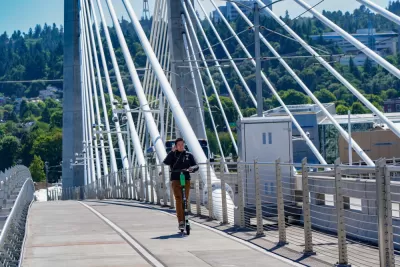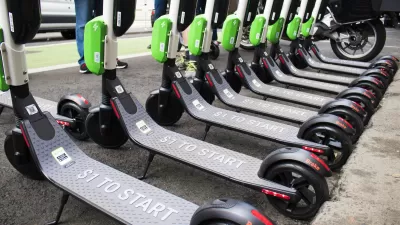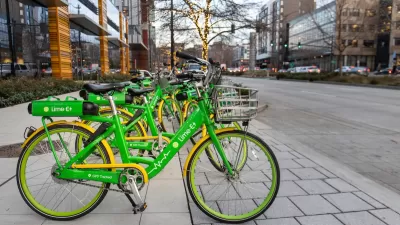One micromobility CEO says operators should align themselves with cities' mobility, climate, and equity goals to maintain their relevance in the urban spaces of the future.

In an op-ed in Smart Cities Dive, Candice Xie, co-founder and CEO of mobility operator Veo, describes what she believes the micromobility industry should do to ensure its effective participation in the future of transportation.
According to Xie, "With the micromobility industry’s track record of bankruptcies, buyouts, and layoffs, cities need to know whether they can count on the industry to help achieve their ambitious transportation goals." Rather than the combative approach many shared mobility operators took in the industry's early days, Xie argues that micromobility companies should position themselves as effective partners to cities having to "make tough decisions about how to allocate limited street space with limited resources."
Xie's five recommendations for micromobility operators:
- Become financially resilient
- Make micromobility work for everyone
- Align with cities’ climate goals
- Foster partnerships that last
- Advocate for safer streets
"Micromobility has great potential to help transform our cities for the better — and decision-makers will recognize that if our industry takes the steps to set itself up for long-term success," asserts Xie. Operators must prove they can offer a financially viable, safe, equitable, and efficient transportation option that works with, not against, existing and future transit systems and infrastructure.
FULL STORY: In it for the long haul: 5 steps to secure micromobility's future

Planetizen Federal Action Tracker
A weekly monitor of how Trump’s orders and actions are impacting planners and planning in America.

San Francisco's School District Spent $105M To Build Affordable Housing for Teachers — And That's Just the Beginning
SFUSD joins a growing list of school districts using their land holdings to address housing affordability challenges faced by their own employees.

The Tiny, Adorable $7,000 Car Turning Japan Onto EVs
The single seat Mibot charges from a regular plug as quickly as an iPad, and is about half the price of an average EV.

With Protected Lanes, 460% More People Commute by Bike
For those needing more ammo, more data proving what we already knew is here.

In More Metros Than You’d Think, Suburbs are Now More Expensive Than the City
If you're moving to the burbs to save on square footage, data shows you should think again.

The States Losing Rural Delivery Rooms at an Alarming Pace
In some states, as few as 9% of rural hospitals still deliver babies. As a result, rising pre-term births, no adequate pre-term care and "harrowing" close calls are a growing reality.
Urban Design for Planners 1: Software Tools
This six-course series explores essential urban design concepts using open source software and equips planners with the tools they need to participate fully in the urban design process.
Planning for Universal Design
Learn the tools for implementing Universal Design in planning regulations.
Smith Gee Studio
City of Charlotte
City of Camden Redevelopment Agency
City of Astoria
Transportation Research & Education Center (TREC) at Portland State University
US High Speed Rail Association
City of Camden Redevelopment Agency
Municipality of Princeton (NJ)





























